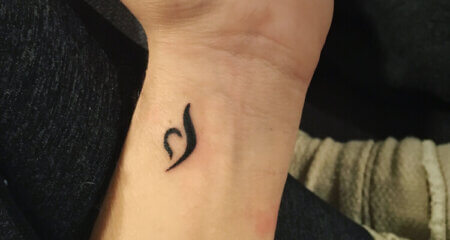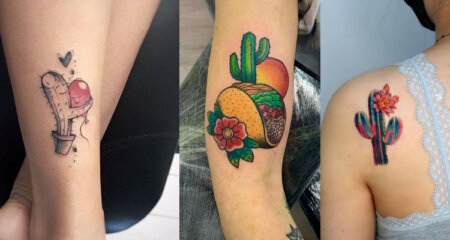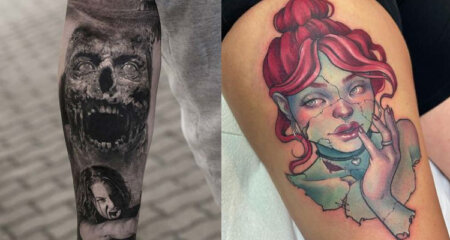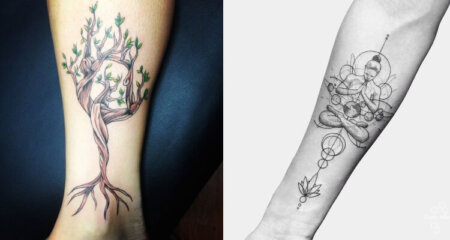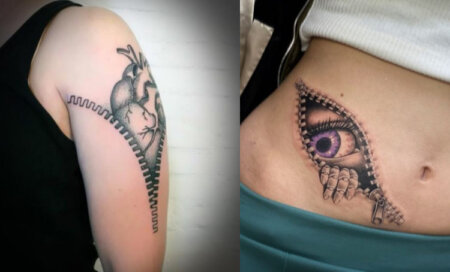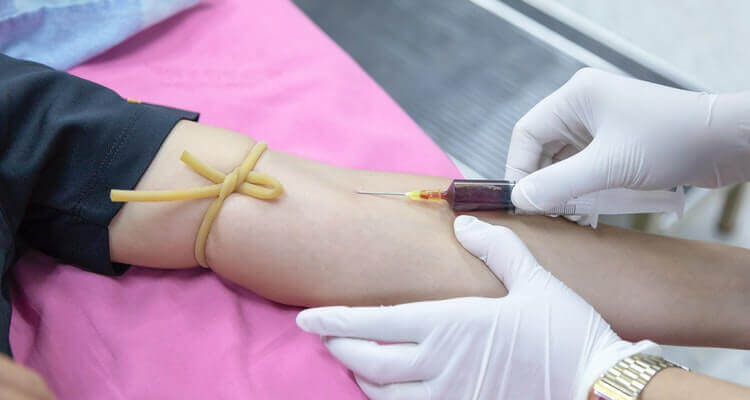
Tattoo and Blood Donation: Rules & Conditions
Posted on
For a very long time, people with tattoos were not allowed to donate blood. It is because of the risk involved in the transmission of diseases and infections during the tattoo process. Unclean tattoo needles can carry several blood-borne disorders and infections, such as Hepatitis B, Hepatitis C, and Human Immunodeficiency Virus (HIV). These diseases are not only dangerous but also are fatal. Apart from this, introducing metal, ink, and other foreign material into the body can affect the wearer’s immune system and expose them to harmful viruses and germs that can cause deadly infections and diseases. And the threat of getting exposed to infection and diseases increases if the studio where you got your tattoo from does not practice proper hygiene. These were the primary reasons behind strict tattoo blood donation rules, and people with tattoos were not allowed to donate blood.
Due to advancements in medical procedures, many countries have relaxed their rules; however, some are still following the old norms. Today, in most states, people with tattoos are eligible to donate blood if they meet specific requirements. Here in this post, we will discuss the tattoo blood donation rules worldwide.
Here we go…….
Can I Donate Blood If I Have A Tattoo?
Tattoo Blood Donation Rules
1. Your tattoo should be at least a year old to become eligible to donate blood. However, this time frame varies from country to country. Also, under certain circumstances, you cannot donate blood even when your tattoo is as old as your state’s rules require it to be.
2. People who get inked from an unregulated facility are also not allowed to donate blood in some countries. These countries have only state-regulated tattoo shops. These tattoo shops are required to pass specific safety and health standards to avoid blood-borne diseases and infections. State-regulated shops are regularly monitored for safe and sterile tattooing practices. However, these standards cannot be guaranteed in states with unregulated tattoo shops, like Georgia, Massachusetts, Nevada, New Hampshire, New York, Pennsylvania, Washington, D.C., and many more.
3. In case you have contracted a blood-borne disease, you cannot donate blood.
4. Conditions that make you ineligible to donate blood for the lifetime are:
- Hepatitis B and C
- HIV
- Hemochromatosis
- Hemophilia
- Jaundice
- Ebola virus
- Babesiosis
- Chagas disease
- Leishmaniasis
- Creutzfeldt-Jakob disease (CJD)
- Sickle cell disease
- If you are using bovine insulin to treat diabetes
- Fits and Allergies – If a person with a tattoo suffers fits or allergic disorders, then he/she won’t be eligible to donate blood.
- Tuberculosis – Tattoo wearers, can only donate blood after the tuberculosis infection is successfully treated.
- Asthma – Individuals who currently have asthma with active symptoms, and severe asthma patients are deemed ineligible for donating blood.
Related: Why Does Everyone Have Tattoos Nowadays?
5. Other conditions that make you ineligible to donate blood for a certain period or under particular circumstances are:
- Heart attack or heart surgery – You are ineligible to donate blood for six months after a heart attack or heart surgery.
- Blood transfusion – In the case of blood transfusion, you cannot donate blood for at least a year.
- Bleeding conditions – If there is no blood clotting issue, you can still donate blood with a bleeding condition.
- High or low blood pressure. Patients with very high or very low blood pressure levels like, above 180/100 reading or below a 90/50 reading, cannot donate blood at all.
- Cancer – Cancer patients with a tattoo, can donate blood depending on the type and stage of the disease.
- Dental or oral surgery – A tattoo wearer is eligible to donate blood three days after the dental surgery.
- Infections – You can donate blood ten days after antibiotic injection treatment is over.
- Malaria – In the case of Malaria, you can donate blood three years after the treatment of Malaria.
- Pregnancy – Women during pregnancy are ineligible to donate blood.
- Breastfeeding – Women who breastfeed cannot donate blood.
- Sexually transmitted diseases – In the case of sexually transmitted infections, such as gonorrhea and syphilis, you can only donate blood once the STIs ends.
- Miscarriages – Women who have had a miscarriage in the past six months are also not eligible to donate blood.
Apart from these, in case of immunizations also, you become ineligible to donate blood for a certain period. However, immunization rules vary from disease to disease. For instance, you can donate blood four weeks after vaccination for mumps, measles, chickenpox, and shingles. In the hepatitis B vaccine, you can donate blood 21 days after the vaccination. Likewise, for every immunization, the time to donate blood will differ. It is better to consult your doctor to know the right times for donating blood after a particular vaccination.
Travel to certain countries also makes you temporarily ineligible to donate blood.
Can you donate blood after getting a tattoo in India?
In India, rules are a bit different. Many hospitals still abstain tattoo wearers from donating blood. It is because of the risk of blood-borne diseases and infections. However, tattoo wearers can even donate blood six months after getting a tattoo.
Eligibility to become a blood donor in India
Several different organizations and hospitals organize blood donation camps in India, where donors can donate blood. Besides, donors can also visit the hospital’s blood banks to donate blood or directly donate to a receiver. Several parameters determine the eligibility of an individual to donate blood in India. According to the Ministry of Health, the Government of India guidelines below mentioned criteria is to be followed:
- The donor must be healthy and fit and should not be suffering from any transmittable disease.
- The donor must be 18–65 years old and weigh a minimum of 50 kg to donate blood in India.
- The donor’s pulse rate must be between 50 and 100 without irregularities.
- The donor’s hemoglobin level must be 12.5 g/dL.
- Donor’s blood pressure level must be – Diastolic: 50–100 mm Hg, Systolic: 100–180 mm Hg.
- The donor’s body temperature must be normal, with an oral temperature not exceeding 37.5 °C or 99.5°F.
- The time between successive blood donations should be more than three months.
- The donor should not be anemic.
- The donor should not be pregnant.
- The donor should not have gotten any tattoos, piercings, or acupuncture treatments recently.
- The donor should not have any disqualifying medical conditions.
NOTE: In case of any doubt, it is essential to speak to your doctor about your eligibility to give blood. Also, it is advised to get yourself tested for any conditions or infections, especially if you’ve recently traveled, or had unprotected sex.
The bottom line
Getting a tattoo does not make you ineligible to donate blood. All you have to take care of is getting your tattoo from a renowned tattooist who follows all safety measures. If you will follow the proper precautions and get a tattoo from a certified tattooist, you will have no problem. Make sure that the place you get your tattoo from uses sealed needles and hygienic conditions to create the tattoo. The use of infected or unclean needles can lead to blood-borne diseases like hepatitis A, C, and HIV.
There won’t be any problem because the donor’s blood is anyway tested before it is accepted as a donation. And any infections that the donor may be carrying due to tattoos can be identified easily. However, it is always good to visit your doctor if you think you have any other medical condition that may make you ineligible to donate blood. Your doctor would be able to advise you on the right thing.
So, worry not, you can do both have a tattoo and donate blood!
Enjoy Tattooing….. ☺ ☺

